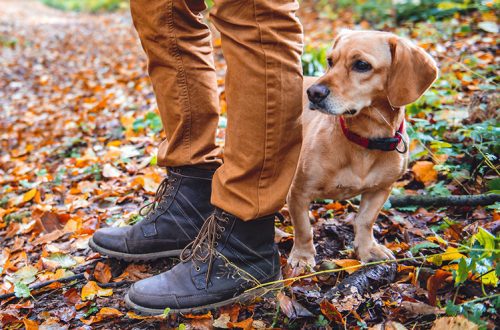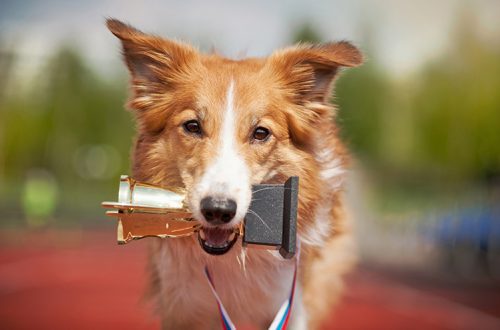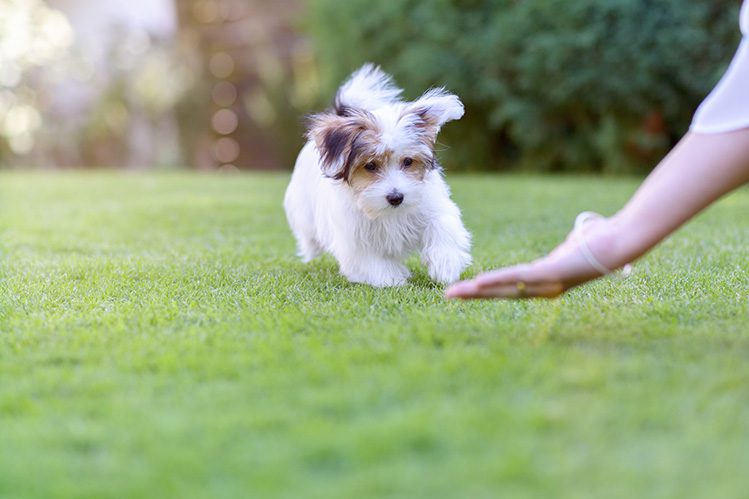
Does my puppy need training courses?
If you have a puppy, this means that you have a new family member, and you need to treat him with all responsibility. Raising and training a puppy are issues that the owner needs to think about immediately after the appearance of the pet.
Some owners complain that they were incorrectly informed about the puppy’s age at which training should begin. They ask questions about training when the pet is already five or six months old, and complain that time has been lost.
In fact, instructors advise starting the education and initial training of a puppy from 2-3 months. At the age of three to seven months, a young pet is most receptive to learning, and this time should not be missed.
If you are not sure whether it is already possible to start classes, it is better to show the puppy to a specialist. The instructor can come to your home, so you don’t have to take your pet anywhere.
Initial puppy training is a delicate job. If you have a dog for the first time, do not have the skills to train pets, it is better to trust the professionals. In 6-12 lessons, the instructor will not only teach the puppy how to perform basic commands, but also tell the owner how to properly communicate with the pet and take care of it without undue pressure.
There is a lot of reference material on the Internet, video tutorials dedicated to the beginning of puppy training. This information should be studied and taken into account. But each dog is individual, with its own disposition. If on the training video the puppy behaves calmly and follows all the commands, this does not mean that your little fidget will obey and understand you perfectly in the same way. And that’s completely normal.
Turning to a professional cynologist allows owners to avoid many mistakes in raising a dog and quickly establish contact with it.
Many owners who independently took up the upbringing and training of the puppy, but, having lost patience, rudely pulled the baby up, shouted. Aggressive actions nullify the benefits of training. If you behaved rudely, then the puppy will start to be afraid of you, stop trusting you. Here you may need the help of a zoopsychologist. It is better to eliminate the risk of such mistakes in communication with a dog from the very beginning, which will become your faithful friend for many years to come.
Be prepared to give your puppy 10-30 minutes of exercise every day (preferably outside). Then the dog will delight you with obedience and good manners!

- Initial training and education of a puppy
Initial puppy training implies that the pet will learn to follow basic commands on demand, will know where to go to the toilet, how to behave at home while the owner is away, how to behave in public places.
It is worth discussing with the trainer the baby’s diet, the necessary activity. While a specialist is next to you, not only your puppy is learning, but you yourself. At the end of the training course, the learned commands will need to be repeated regularly. If you don’t ask a puppy for a month to give you a paw, he will forget how to do it.
Immediately take note of the dog safety rules at home and on the street and first aid rules for minor injuries. With the help of an instructor, you can correct the puppy’s behavior, for example, wean it from chewing furniture and biting, wean it from picking up “interesting” finds from the ground.
Based on the results of the initial course of raising and training a puppy, your pet will learn to move calmly next to you during a walk, even without a leash, return to you and stop barking on demand, respond to the prohibition of action. The puppy will be able to sit, lie down, stand on command, etc. The initial training of the puppy is followed by more serious classes that will help the dog, growing up, master the necessary social habits and behaviors.
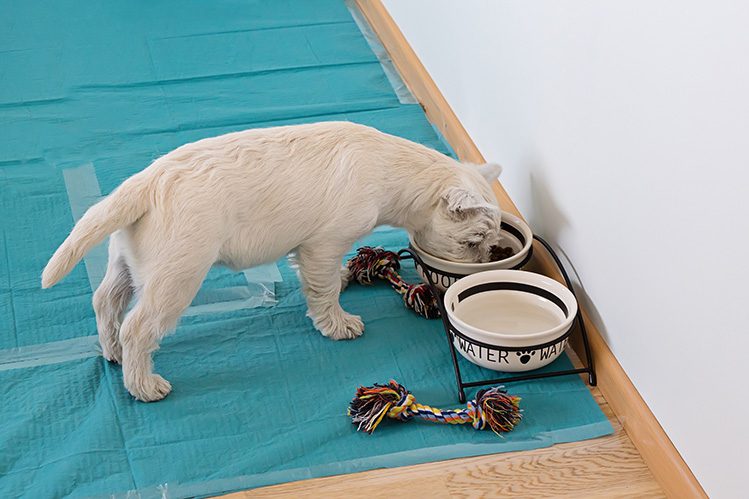
- OKD
The General Training Course (OKD) is a set of basic dog skills. This dog training system was developed in the Soviet army about a hundred years ago. Raising and training a puppy within the framework of the OKD will help to achieve the execution of commands, regardless of distractions – passers-by, cars, other dogs, a sudden thunderstorm. OKD is designed for puppies from three to four months.
On the course, together with the puppy, with the help of an instructor, you will work out the “come to me” command, which will help your dog not get lost. The “next” command will allow you to walk so that the puppy does not drag you along. The “stay” command will serve you well if you and your four-legged friend wait for the traffic light to turn green. In a word, each command has an important practical application.
Based on the results of OKD, the puppy will be able to carry out commands without a leash and treats as a reward, he will begin to obey not only you, but also your loved ones, so that the family does not wait for you from work in the hope that the pet will calm down with your appearance. In addition, the puppy will learn the “fetch” command, be able to bring things on command, and several exercises that will improve his physical condition.
After completing the course with a puppy, repeat the acquired skills. Continue to practice them even after a year, when the dog is fully formed and the acquired skills will remain with it for life.
- UGS
Guided city dog (UGS) – a course on raising a companion dog. It is aimed at teaching the dog a calm reaction to the stimuli of the metropolis. You can start UGS, according to experts, with puppies from five to six months old.
The upbringing and training of the puppy in this case is not focused on play and exercise, but on discipline. The course will help you interact with your pet on the playground or in the city. There are no normative commands in the course, you can come up with a command that only you and your puppy will understand.
Experts call UGS an alternative to OKD with an emphasis on managing a puppy in all situations, and not just in a closed area, as the general course suggests.
These are the main courses recommended for puppies. But there are other interesting programs that allow you to develop special skills in your pet: for example, teach him agility.
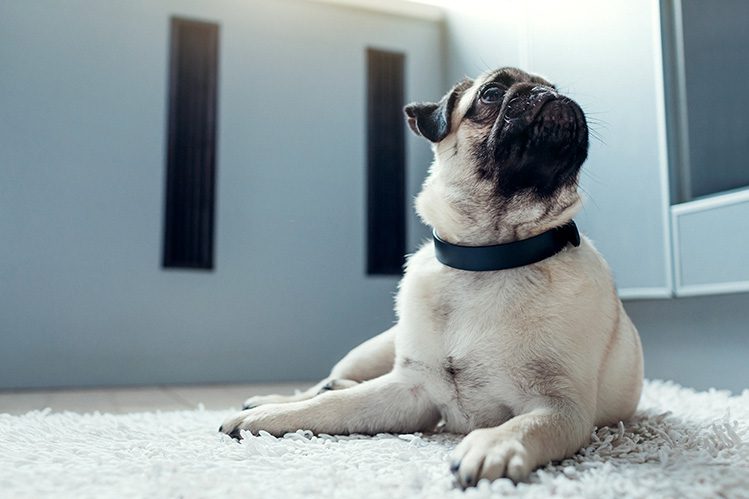
Starting puppy training should not be stressful for him. Let at first it will be individual lessons at home, then on a deserted site where you will not be disturbed. After that, you can accustom the baby to the fact that cars can pass nearby, other people can pass. And after that, the puppy will be able to adapt to the presence of other dogs around him, then you can move on to group classes.
Do not allow the idea that the puppy can be left with the trainer and go about his business, this is not so. It’s better to work together – it’s more efficient! When it’s your turn to help your puppy reinforce learned skills, it’s best to train with him regularly, but little by little, no need to tire your four-legged friend. Each exercise is enough to repeat three to four times. Remember to praise the puppy every time he responds correctly to the command – pet him, give him a treat, tell the baby “Good! Well done”.
When choosing a training program, do not choose one that is obviously not suitable for the breed and temperament of the puppy. After all, dogs are service, hunting, decorative, they have different purposes. The essence of training is to fill the life of your pet with meaning and make your communication more joyful and interesting. Therefore, in the matter of training, be guided not by advice from the Internet or fashion trends, but by the individual needs of the puppy and the recommendations of specialists.



